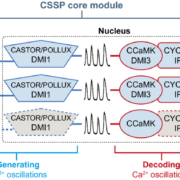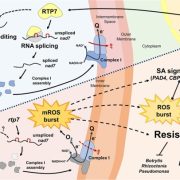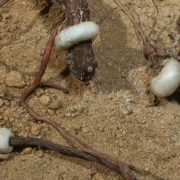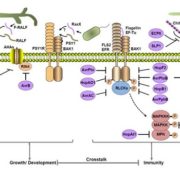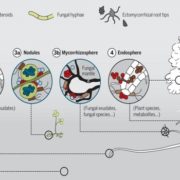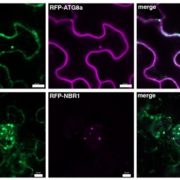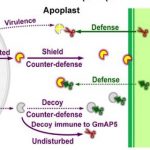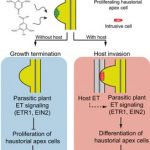WUSCHEL triggers innate antiviral immunity in plant stem cells (Science)
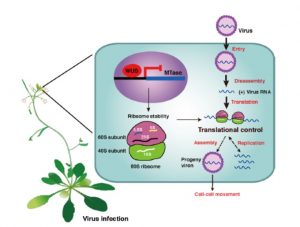 Meristem culture is widely used as a technique for plant propagation because meristems are usually virus-free, even in systemically infected plants. It has long been assumed that viruses are unable to enter the cells of the meristem due to the meristem’s lack of vascular connections to the plant. Here, Wu et al. identify an active meristem-based viral suppression system that involves the meristem-specific transcription factor WUSCHEL (WUS). WUS maintains the stem-cell fate of the meristem and is expressed in a very specific domain. The authors noted that in virus-infected plants, WUS-expressing cells are resistant to viral invasion, even in genetic backgrounds that alter the normal WUS expression pattern, suggesting that WUS somehow suppresses viral infection. Additional studies revealed that WUS acts by repressing expression of an RNA methyltransferase that is necessary for rRNA processing and therefore ribosome assembly, leading to a global decrease in protein synthesis in these cells. Because viruses depend on the host machinery for protein synthesis, with their repressed protein-synthesis machinery WUS-expressing cells are inherently more resistant to viruses. (Summary by Mary Williams @PlantTeaching) Science 10.1126/science.abb7360
Meristem culture is widely used as a technique for plant propagation because meristems are usually virus-free, even in systemically infected plants. It has long been assumed that viruses are unable to enter the cells of the meristem due to the meristem’s lack of vascular connections to the plant. Here, Wu et al. identify an active meristem-based viral suppression system that involves the meristem-specific transcription factor WUSCHEL (WUS). WUS maintains the stem-cell fate of the meristem and is expressed in a very specific domain. The authors noted that in virus-infected plants, WUS-expressing cells are resistant to viral invasion, even in genetic backgrounds that alter the normal WUS expression pattern, suggesting that WUS somehow suppresses viral infection. Additional studies revealed that WUS acts by repressing expression of an RNA methyltransferase that is necessary for rRNA processing and therefore ribosome assembly, leading to a global decrease in protein synthesis in these cells. Because viruses depend on the host machinery for protein synthesis, with their repressed protein-synthesis machinery WUS-expressing cells are inherently more resistant to viruses. (Summary by Mary Williams @PlantTeaching) Science 10.1126/science.abb7360


